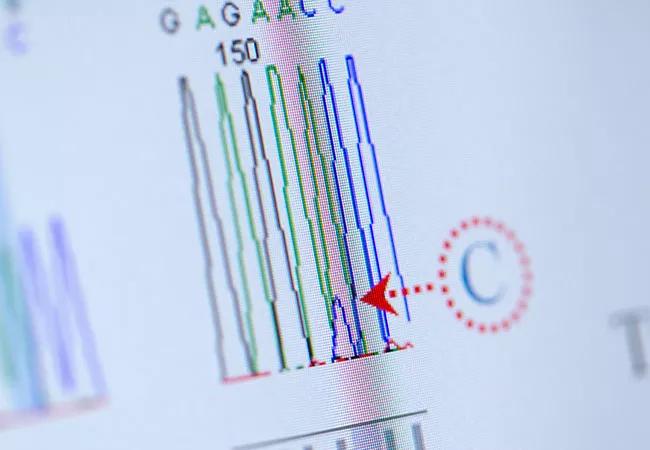One step closer to identifying patients predisposed to treatment-resistant prostate cancer

Back-to-back discoveries from Cleveland Clinic demonstrate for the first time how a testosterone-related genetic abnormality can help predict individual patient responses to specific prostate cancer therapies.
Advertisement
Cleveland Clinic is a non-profit academic medical center. Advertising on our site helps support our mission. We do not endorse non-Cleveland Clinic products or services. Policy
The studies, published October 12 in JAMA Oncology, suggest that men who inherit this variant would benefit from a personalized treatment plan that targets specific hormonal pathways.
Led by Nima Sharifi, MD, of the Cleveland Clinic Lerner Research Institute, Glickman Urological & Kidney Institute and Cleveland Clinic Taussig Cancer Institute, the research teams studied the role of the HSD3B1(1245C) genetic variant in two different prostate cancer patient populations, following androgen deprivation therapy (ADT). In 2013, Dr. Sharifi discovered that prostate cancer cells with the genetic abnormality survive ADT by producing their own androgens.
In the first new study, Dr. Sharifi and colleagues from Memorial Sloan Kettering Cancer Center, Harvard/Dana-Farber Cancer Institute and University of Michigan Comprehensive Cancer Center analyzed 213 men whose prostate cancer recurred after radiation therapy and underwent ADT. They found for the first time that following radiation and ADT, prostate cancer was much more likely to spread—and spread rapidly—in men who had the HSD3B1(1245C) variant.
The second study, a collaboration with researchers at University of California San Francisco, focused on 90 men with metastatic cancer who had become resistant to ADT. They were subsequently treated with ketoconazole, which blocks production of androgens outside of the testes (e.g., those developed by prostate cancer cells that are evading ADT treatment).
Surprisingly, men with the genetic anomaly fared better on ketoconazole than men without the variant. This finding raises the possibility that targeting variant tumors’ backup androgen supply (outside of the testes) could be a successful strategy when ADT fails.
Advertisement
“We hypothesized that HSD3B1(1245C) variant tumors become resistant to ADT because they have a backup supply of androgens,” says Dr. Sharifi. “However, relying on these extra-gonadal androgens makes them more sensitive to ketoconazole.”
These discoveries complement earlier studies and support the use of HSD3B1(1245C) as a predictive biomarker to help guide critical treatment decisions. While the outlook for patients with this gene variant is poor, these studies offer hope for a new treatment strategy for these men. More studies are needed using next-generation androgen inhibitors, such as abiraterone and enzalutamide, Dr. Sharifi emphasizes.
“We are hopeful that these findings will lead to more personalized and effective treatments for prostate cancer,” says Dr. Sharifi. “If men carry a specific testosterone-related genetic abnormality we may be able to personalize their therapy and treat specific patients more aggressively.”
Further reading on Dr. Sharifi’s research.
Dr. Sharifi holds the Kendrick Family Chair for Prostate Cancer Research and co-directs Cleveland Clinic’s Center of Excellence for Prostate Cancer Research. In 2017 he received a Top Ten Clinical Research Achievement award from the Clinical Research Forum for his landmark discovery that men who carry the HSD3B1(1245C) variant are more likely to die from their disease.
This work was supported by the U.S. Department of Defense, Howard Hughes Medical Institute, Prostate Cancer Foundation, American Cancer Society, the U.S. Army Medical Research and Materiel Command and grants from the National Cancer Institute.
Advertisement
Photo by Russell Lee
Advertisement
Advertisement

First-of-its-kind research investigates the viability of standard screening to reduce the burden of late-stage cancer diagnoses

Global R&D efforts expanding first-line and relapse therapy options for patients

Study demonstrates ability to reduce patients’ reliance on phlebotomies to stabilize hematocrit levels

A case study on the value of access to novel therapies through clinical trials

Findings highlight an association between obesity and an increased incidence of moderate-severe disease

Cleveland Clinic Cancer Institute takes multi-faceted approach to increasing clinical trial access 23456

Key learnings from DESTINY trials

Overall survival in patients treated since 2008 is nearly 20% higher than in earlier patients